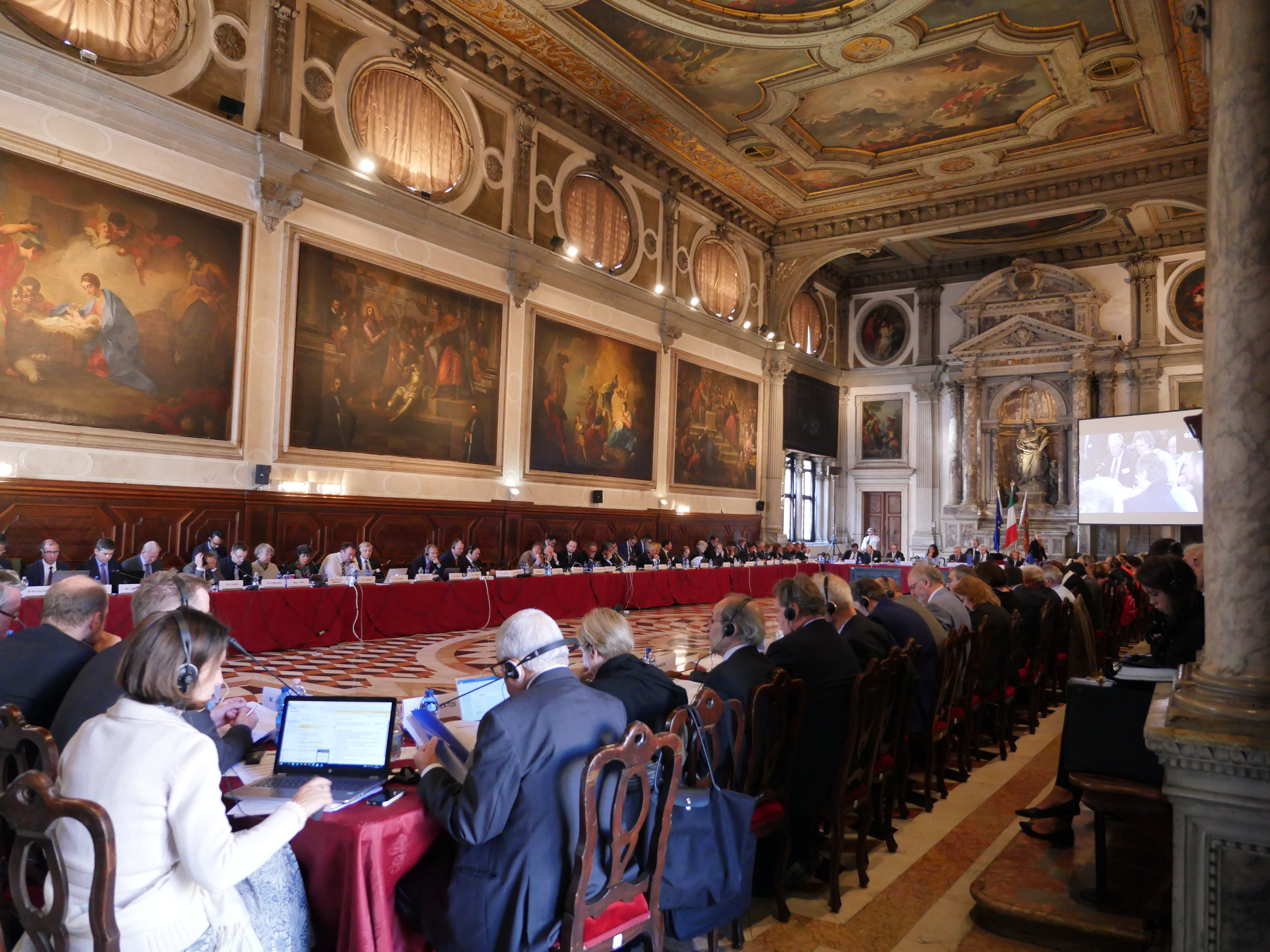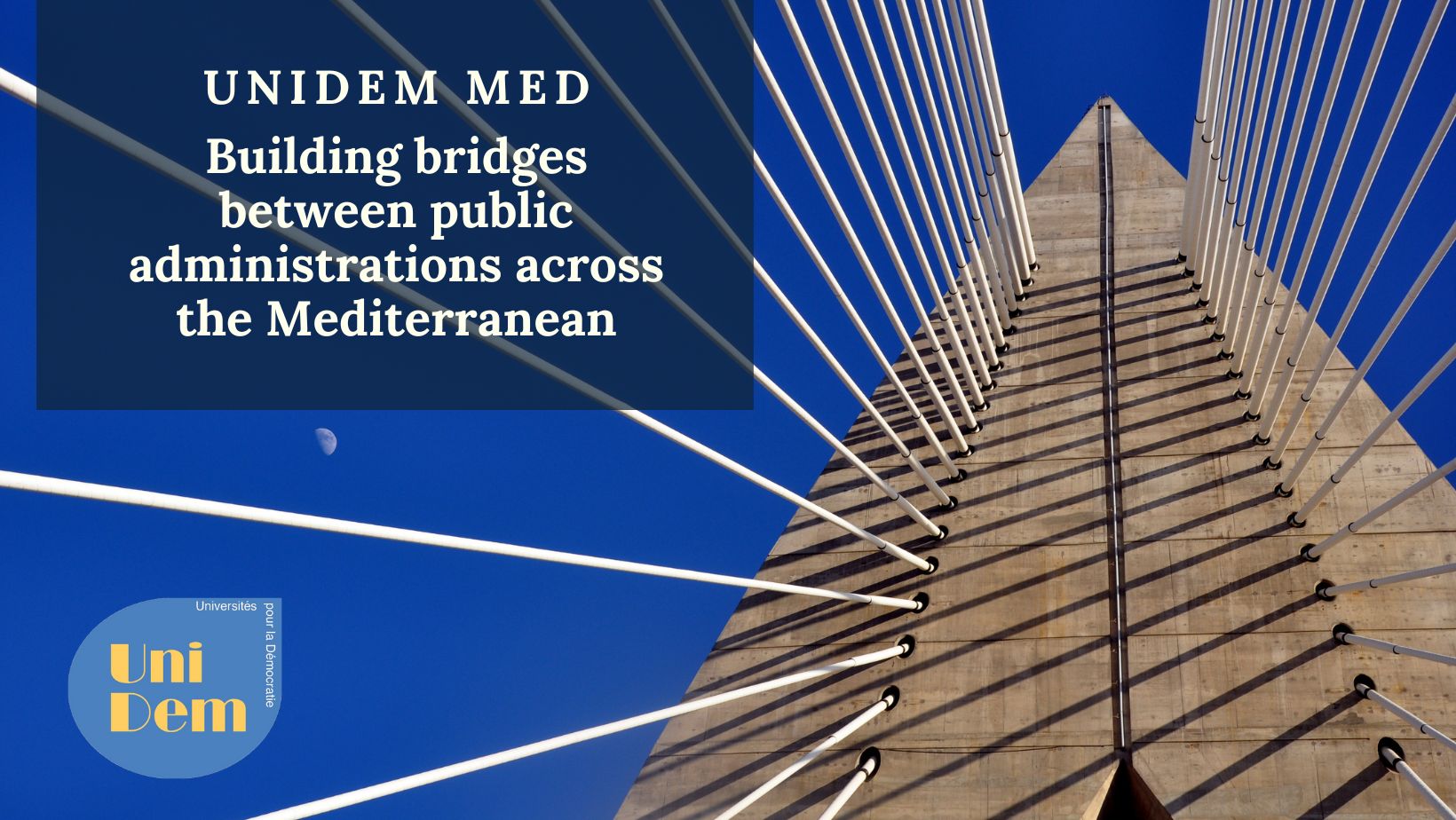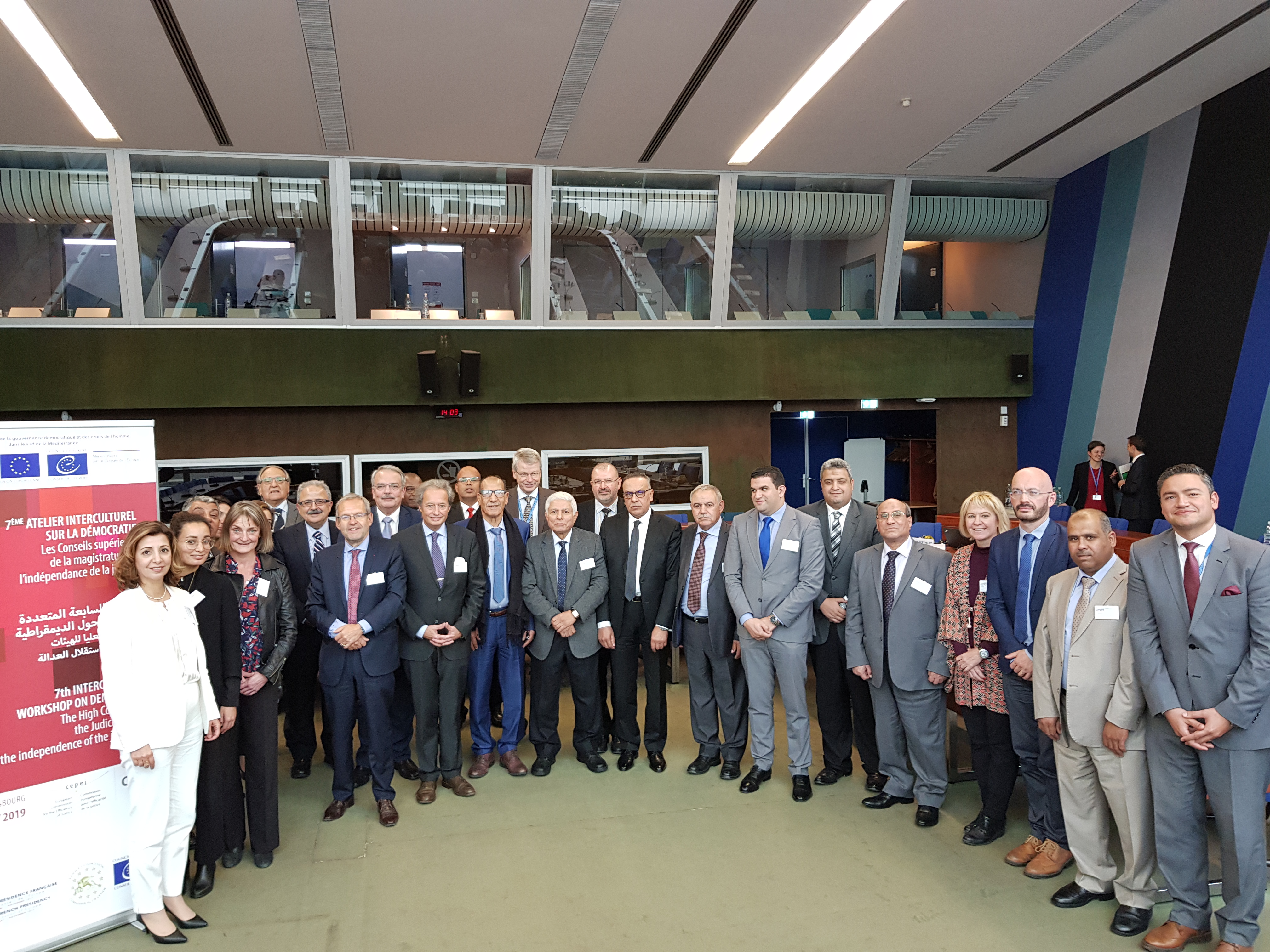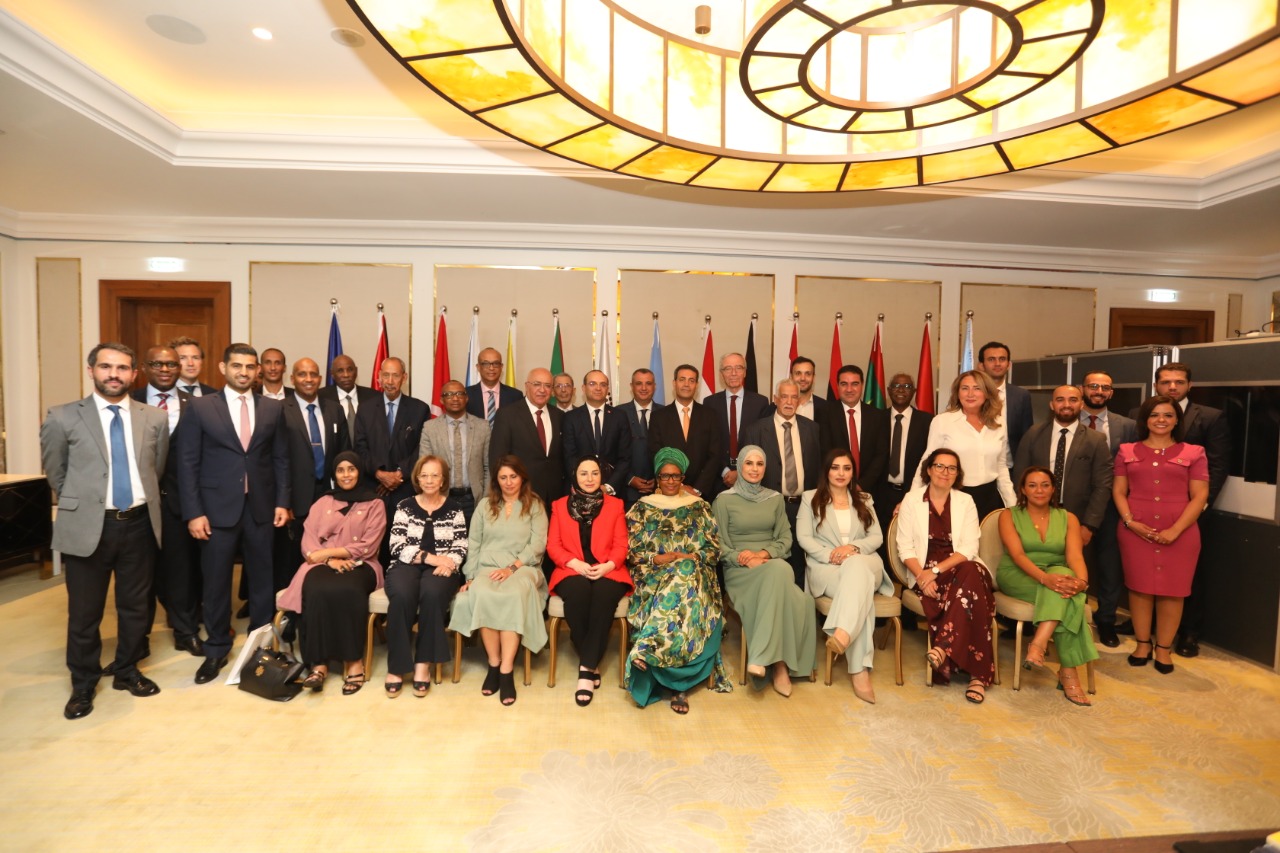Co-operation in the southern Mediterrannean region
Overview of activities
The Venice Commission is mainly known for its legal opinions. Some countries from the Southern Mediterranean region have requested legal opinions on their draft legislation. Apart from providing legal opinions on constitutional matters, the Venice Commission also shares the standards and the best practices adopted within the Council of Europe membership beyond its borders including through co-operation activities on bilateral or regional basis.
Co-operation between the Venice Commission and Southern Mediterranean countries started before the Arab spring. Algeria and Morocco became full members of the Venice Commission in 2007, and Tunisia in 2010. The Arab Spring gave new impetus to the co-operation between the Venice Commission and the countries of the Southern Mediterranean region. Since then, cooperation with the region has steadily increased. The Venice Commission’s co-operates with countries of the Southern Mediterranean region in areas such as: democratic institutions and fundamental rights; constitutional justice and ordinary justice; and elections, referendums and political parties. Co-operation may take many forms, such as requests for opinions; contributions to or co-organisation of conferences, seminars, workshops or other events; and exchanges of views or contacts with authorities, institutions or independent bodies.
The co-operation activities of the Venice Commission in the southern Mediterranean are mainly funded by the European Union, notably through the successive phases of the South Programme - a joint programme of the Council of Europe and the European Union - which aims to support democratic reforms in the region (Algeria, Egypt, Jordan, Lebanon, Libya, Morocco, Palestine* and Tunisia), as well as throught voluntary contributions from France, Italy, Norway and Belgium.
Useful links:
Providing legal opinions on draft legislation
 The Venice Commission has provided a number of legal opinions on draft legislation upon request coming from the southern Mediterranean partners or the European Union. Exchanges of views with high level representatives of the national authorities take place before drafting and adopting the opinion during the official sessions of the Venice Commission.
The Venice Commission has provided a number of legal opinions on draft legislation upon request coming from the southern Mediterranean partners or the European Union. Exchanges of views with high level representatives of the national authorities take place before drafting and adopting the opinion during the official sessions of the Venice Commission.
In the case of Tunisia, the Commission provided an opinion on the draft Constitution of Tunisia after two years of close and fruitful co-operation with the National Constituent Assembly of Tunisia (NCA). The Constitution adopted on 27 January 2014 contains a large number of Commission's recommendations. Legal opinions were later adopted with regard to specific organic laws such as the laws on the Constitutional Court of Tunisia (2015), on the economic and financial aspects of the reconciliation process (2015), on the organisation and the political parties and their financing (2018) and on the Independent Authority on sustainable development and the rights of the future generations (2019). In 2022, the Venice Commission adopted one opinion on the Draft State Property Code and endorsed an urgent opinion on the Constitutional and legislative framework on the referendum and elections announcements by the president of the Republic, and in particular on the decree-law n°22 of 21 April 2022 amending and completing the organic law on the independent high authority for elections (ISIE).
With regards to Morocco, the Minister of Solidarity, Women, Family and Social Development requested, in october 2012, the assistance of the Venice Commission on two draft laws aimed at establishing the authority in charge of parity and the fight against discrimination, as well as the Consultative Council for the Family and Children. Following this request, and after consultation with the Moroccan authorities, the Venice Commission prepared two informal opinions in close collaboration with ECRI and DGII experts which were transmitted to the Moroccan authorities in October 2013.
In March 2013, the Egyptian authorities requested an opinion from the Venice Commission on the draft law on Civic Work Organisations of Egypt. The interim opinion was adopted by the Commission (CDL-AD(2013)023) and forwarded to the Egyptian authorities.
In 2021, the Ministry of Justice of Lebanon requested an opinion on the Draft law on the independence of judicial courts which was adopted in presence of the Minister of Justice of Lebanon at the 131st plenary session of the Venice Commission.
Besides, the Venice Commission has also assisted some countries by providing informal opinions. Following a request from the Kingdom of Morocco the Venice Commission supported the preparation of two laws namely the law establishing the Authority responsible for Equality and the Fight against Discrimination and the Consultative Council for the Family and Children (2013) and the organic law on the High Judicial Council and the Status of Judges (2015).
Disseminating standards and building capacities
Apart from providing legal opinions on draft legislation the Venice Commission also has engaged in other types of co-operation activities. This variable geometry co-operation is based upon demand and consists of organising or participating in various conferences, seminars and capacity development workshops and engaging in dialogues with the authorities. Activities range from bilateral to regional events which gather several southern Mediterranean partners. Often, the adoption of legal opinions by the Venice Commission could be preceded by meetings, exchange of views or targeted conferences or seminars presenting the European experience in a specific domain. The Venice Commission organises meetings and conferences on a variety of topics such as : independent democratic institutions, preliminary requests to constitutional courts, constitutional control, ombudsmen, participation of women in politics, elections and financing of political campaigns, constitutional justice etc.).
Supporting the public administration modernisation in the southern Mediterranean: the UniDem Med campus
 Through exchanges and debates between peers from Europe and the Southern Mediterranean, the regional seminars UniDem Med (University for Democracy for the Southern Mediterranean) strengthen the legal capacities in areas of good governance, rule of law and fundamental rights of senior civil servants of seven southern Mediterranean partners (Algeria, Egypt, Jordan, Lebanon, Morocco, Palestine* and Tunisia). More than 1200 senior civil servants from the region have already been trained on a peer-to-peer basis in the period 2015-2022. In October 2017, the Venice Commission signed a Memorandum of Understanding with the Ministry of the Reform of the Administration and the Civil Service of the Kingdom of Morocco in order to continue and sustain the project.
Through exchanges and debates between peers from Europe and the Southern Mediterranean, the regional seminars UniDem Med (University for Democracy for the Southern Mediterranean) strengthen the legal capacities in areas of good governance, rule of law and fundamental rights of senior civil servants of seven southern Mediterranean partners (Algeria, Egypt, Jordan, Lebanon, Morocco, Palestine* and Tunisia). More than 1200 senior civil servants from the region have already been trained on a peer-to-peer basis in the period 2015-2022. In October 2017, the Venice Commission signed a Memorandum of Understanding with the Ministry of the Reform of the Administration and the Civil Service of the Kingdom of Morocco in order to continue and sustain the project.
Rule of law from theory to practice: Intercultural workshops on democracy
 The Intercultural workshops on democracy were launched by the Venice Commission in 2012. Seven Workshops have been organised so far, which enabled lawyers, politicians and academics from different Arab countries and their European colleagues to hold fruitful exchanges of views on subjects such as consitutionnal reforms and their implementation as well as freedom of association and political parties. The workshops represent a unique platform for an exchange of best practices between various institutions such as ministries, parliaments, constitutional courts and other jurisdictions in Europe and the Arab world. By combining scientific work and theoretical developments with hands-on practical experience, the Intercultural workshops on democracy contribute to strengthening the rule of law in the southern Mediterranean region through a better understanding and better application of the standards of the Venice Commission and the Council of Europe.
The Intercultural workshops on democracy were launched by the Venice Commission in 2012. Seven Workshops have been organised so far, which enabled lawyers, politicians and academics from different Arab countries and their European colleagues to hold fruitful exchanges of views on subjects such as consitutionnal reforms and their implementation as well as freedom of association and political parties. The workshops represent a unique platform for an exchange of best practices between various institutions such as ministries, parliaments, constitutional courts and other jurisdictions in Europe and the Arab world. By combining scientific work and theoretical developments with hands-on practical experience, the Intercultural workshops on democracy contribute to strengthening the rule of law in the southern Mediterranean region through a better understanding and better application of the standards of the Venice Commission and the Council of Europe.
Co-operation with regional Ombudsman institutions
The Venice Commission started in 2012 a specific co-operation with the Office of the Mediator of Morocco to support the development of capacities for staff of Ombudsmen members of AOMF (Association of Ombudsmen and Mediators of the Francophonie) and members of AMO (Association of Mediterranean Ombudsmen). Regular training sessions have been organised involving Council of Europe’s expertise on various subjects such as : the role of the Ombudsman in simplifying administrative procedures and access to public services (2013), Self-referral: methods and impact (2014), The means of intervention of ombudsmen and mediators (2014), Strategic planning as a vector of performance for the ombudsman/mediator institutions of the Francophonie (2014), Simplification of administrative proceedings and access to public services (2015), Ombudsmen and the challenges of new information technologies (2015), the Ombudsmen’s role in the protection of the rights of children on the move during their migratory journey (2016), Communication objectives and strategies for the mediation institutions in the times of the “social web” (2016), The deontology of security forces and the rights of migrants during their migratory journey (2017), The rights of detainees in the national territory and of those detained abroad (2018), The own initiative (2019), and The Digital transformation and the access to rights: What role for Mediators and Ombudsmen? (2022).
In March 2019 the Venice Commission published a set of guidelines to protect ombudsman institutions. The Principles for the Protection and Promotion of the Institution of the Ombudsman, or “The Venice Principles” represent a unique international reference text listing the legal principles essential to their establishment and functioning in a democratic society. Drawn partly from a diversity of existing models in the world, the 25 principles are the most comprehensive checklist ever compiled, ranging from election or dismissal and mandates of mediators, to financial and material guarantees that are necessary for the proper functioning and independence of ombudsman institutions.
Co-operation with the Organisation of Arabic Speaking Electoral Management Bodies
 The Organisation of Arabic Speaking Electoral Management Bodies is an independent, non-profit regional organisation aiming to support the co-operation between the different electoral bodies in the Arab speaking countries. In June 2015, the Venice Commission participated in the official launching of this regional initiative, which took place in Beirut, Lebanon. The event served to establish the organisation and propose strategies for regional co-operation in the electoral field in the Arab world. On 24 October 2015, at the 104th Plenary Session (23-24 October 2015), the Venice Commission and the Organisation of Arabic Speaking Electoral Management Bodies signed a Memorandum of Understanding, which sets out the terms and conditions for co-operation.
The Organisation of Arabic Speaking Electoral Management Bodies is an independent, non-profit regional organisation aiming to support the co-operation between the different electoral bodies in the Arab speaking countries. In June 2015, the Venice Commission participated in the official launching of this regional initiative, which took place in Beirut, Lebanon. The event served to establish the organisation and propose strategies for regional co-operation in the electoral field in the Arab world. On 24 October 2015, at the 104th Plenary Session (23-24 October 2015), the Venice Commission and the Organisation of Arabic Speaking Electoral Management Bodies signed a Memorandum of Understanding, which sets out the terms and conditions for co-operation.
The Venice Commission provided support in the organisation of the 2nd General assembly of the Organisation of the Electoral Management Bodies of Arab countries, in partnership with the United Nations Development Programme (UNDP) and the Independent High Electoral Commission of Tunisia. The event took place in February 2017 in Tunisia and focused on the independence of electoral administrations. The 3rd General Assembly of Arab Electoral Bodies (Arab EMB), took place in Sweimeh, Jordan (3-5 February 2019) and was followed by an international conference on the electoral dispute resolution. The 4th General Assembly of Arab EMBs took place in Nouakchott, Mauritania, 4-6 March 2020 and was followed by an international conference on the role of media in elections. Representatives of the Venice Commission participated in the 5th General Assembly and the subsequent conference on “Youth participation in political life in the Arab region” which took place on 22-24 August 2022 in Amman, Jordan.
- More information on the co-operation with the Arab EMBs
Legal advice in election observation
Based on its well recognised legal expertise in the field of election observation, the Venice Commission has observed along with other Council of Europe’s bodies and international organisations the parliamentary elections in Tunisia, namely in October 2014 as well as the presidential Elections on 23 November 2014.
_____________________________________________
* This designation shall not be construed as recognition of a State of Palestine and is without prejudice to the individual positions of Council of Europe and European Union member States on this issue.